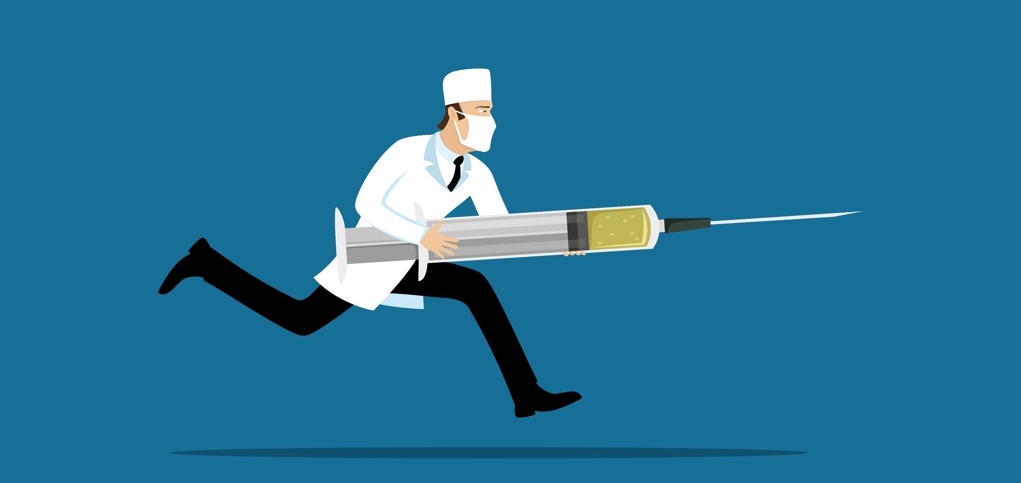Hong Kong, 23 December 2020: We’d all like to escape this Covid-19 nightmare, shake off our shackles and bolt to a world of freedom where we can do what we like without a care. Well, one 63-year-old coronavirus patient did exactly that last Friday, hightailing from a public hospital isolation ward and enjoying 54 hours on the run before being captured. In a scene straight from one of Hong Kong’s police movies, he was apprehended on a street corner by officers in full protection gear and the area was cordoned off before he was escorted back to hospital.
While the authorities were attempting to find out where he went and trace who he met, red-faced hospital officials admitted the patient had tried to abscond the day before but, even after that failed attempt, no guard had been posted outside the ward and security cameras were not recording. Suffice to say, they will keep a closer watch on him this time.
While not for one moment condoning his reckless act that placed multiple people in danger of infection, plus the inconvenience caused to police and health authorities, it is hard not to feel a degree of sympathy for the old boy. He was a close contact of another Covid-19 case and was forcibly admitted to the isolation ward after testing positive. (Hong Kong requires all positive cases to be hospitalised, whereas most jurisdictions allow mild cases to recover at home.) He was asymptomatic, but was told he would not be discharged until 18 January. Clearly, in these circumstances, a desperate dash for freedom could not be resisted, although he is likely to pay the consequences – the offence is punishable with a HK$5,000 fine and two months’ imprisonment.
This not-so-patient patient is not alone in his frustration as new restrictions abound. Thousands of Hong Kong residents studying in the UK are now stranded after our government yesterday banned all passenger flights from there in an attempt to shut out a more virulent strain of Covid-19 which is spreading through London and the southeast. Thus, many festive family reunions here have been cancelled. Also, arrivals from Britain already undergoing the mandatory 14 days quarantine in a designated hotel are now required to do a further week of self-isolation at home. In an added twist, all aircrew in Hong Kong who have been to the UK in the past two weeks must now self-isolate in designated hotels for three weeks, creating another logistical headache for passenger and cargo airlines.
If these measures already appear rather Orwellian, there are some in the pro-establishment camp – including former city leaders Tung Chee-hwa and CY Leung – and the business sector who want us to go to a whole new level with compulsory mass testing and a partial lockdown. A delegation of senior Hong Kong ministers, led by the city’s No.2 Matthew Cheung, was in Shenzhen yesterday to meet mainland counterparts on Covid-19 matters and explain why they are resisting this strategy. They are correct to do so. Recent civil disorder and widespread distrust of the government are hardly bedrocks for public cooperation.
For the present, the authorities are staying reliant on strategic testing and maintaining the strictest social distancing rules thus far in the pandemic, which have been extended to at least 6 January. There are rays of hope these measures are working as 63 new infections were announced yesterday, taking our city’s tally to 8,300 cases, with 131 related fatalities. We are told to expect about 50 new cases today which, if confirmed, would be the lowest number for about a month.
Again, while acknowledging the scale of this public health emergency, I wish to stress the importance of keeping matters in perspective. The confirmed case total represents just 0.11% of the population, roughly one in 900 people, spread over the course of the entire year, with the vast majority of patients having experienced little or no discomfort and made a full recovery.
Meantime, we are awaiting an announcement from our government on Hong Kong’s vaccine rollout. Residents here are understandably expectant, given that mass inoculation programmes are already underway elsewhere. The first batch of doses from China’s Sinovac Biotech are expected to arrive here within the first weeks of January, to be followed by shots from Pfizer-BioNTech, the vaccine being used in the US and UK. An agreement with another major vaccine candidate, Oxford-AstraZeneca, is in the works. Our Chief Executive Carrie Lam previously said people would not be able to choose their vaccine, now some health experts are saying individuals should have a choice and that this would help build trust in the programme. We can see where this issue is going and it isn’t going to be simple.
But I should conclude my final missive of 2020 on a more cheerful note by wishing you all Merry Christmas and Happy New Year. I shall enjoy welcome time with family and friends and write again on 6 January. As our coop-flying coronavirus friend in the public hospital would attest, we all need a break.
Stay safe and well, everybody!
Colin Cohen
Senior Partner
Boase Cohen & Collins



